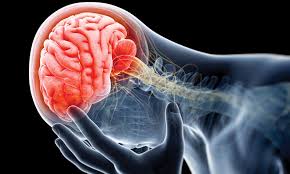Know how blocked sensory pathways can be early clues to brain tumours, reveals Experts
Wed 11 Jun 2025, 00:44:22

Diagnosing brain tumours early is often challenging, as most patients present with nonspecific symptoms. Also, there are no screening tests, and brain imaging is not routinely recommended as a screening tool, as the incidence of brain tumours in the general population is relatively low. However, it is important to detect brain tumours early so as to initiate prompt and appropriate treatment, which would help minimise the morbidity and mortality associated with these tumours.
Let us look at certain symptoms related to our senses (vision, hearing, smell, taste, and touch) from Dr. Sathwik R. Shetty, Consultant – Neurosurgery, Manipal Hospital Old Airport Road, which, when present, would warrant a detailed evaluation.
1. Vision: Gradual diminution of vision (especially in young people), progressive blurring of vision, or visual field cuts (unable to see in certain directions) warrant an ophthalmologist evaluation and further brain imaging (based on the ophthalmological findings). Brain tumours can cause swelling in the brain, which, in turn, can cause swelling of the optic disc (papilledema), blurry vision, or diminution of vision. Certain tumours in and around the pituitary gland can produce characteristic visual field cuts, indicating the presence of a brain tumour.
2. Hearing: Progressive hearing loss in one ear (especially in young people), inability to understand speech, difficulty hearing in noisy surroundings, or a ringing sound in the ear (tinnitus) are important indicators for an ENT consultation and further brain scans as needed. Hearing loss accompanied by loss of balance and incoordination is seen in a tumour called vestibular schwannoma (a benign brain tumour that arises from the
nerve of hearing and balance).
nerve of hearing and balance).
3. Smell: Gradual loss of smell, abnormal smells, a sense of bad smell (when actually there is none), or complete loss of smell can all indicate tumours involving the olfactory nerve (the nerve concerned with smell) or tumours in the frontal lobe of the brain. Some patients can have associated changes in personality, vision, or seizures as well.
4. Taste: Loss of taste sensation or abnormal/altered taste sensation is associated with tumours involving the temporal lobe of the brain. These tumours are generally also associated with seizures and/or headaches. Cystic vestibular schwannomas can also present with altered taste sensations because of involvement of the facial nerve.
5. Touch: Brain tumours can produce numbness in the face or one side of the body, depending on their location in the brain. This is secondary to the disruption of sensory signals that travel from the body to the brain. Tumours in the sensory cortex, thalamus, or brainstem can produce numbness. Some of them can have associated symptoms such as weakness, headache, or seizures. Other than brain tumours, some spinal cord tumours and blood cancers can also present with numbness.
Therefore, people experiencing any of the above should not ignore their symptoms and should meet the concerned specialists (ophthalmologists, ENT surgeons, neurologists, or neurosurgeons) and get themselves evaluated.
Disclaimer: (Tips and suggestions mentioned in the article are for general information only and should not be construed as professional medical advice. Always consult your doctor or a dietician before starting any fitness programme or making any changes to your diet.
No Comments For This Post, Be first to write a Comment.
Most viewed from Health
AIMIM News
Latest Urdu News
Most Viewed
May 26, 2020
Can Lionel Messi's visit boost Indian football?
Latest Videos View All
Like Us
Home
About Us
Advertise With Us
All Polls
Epaper Archives
Privacy Policy
Contact Us
Download Etemaad App
© 2026 Etemaad Daily News, All Rights Reserved.

























.jpg)
.jpg)
.jpg)


